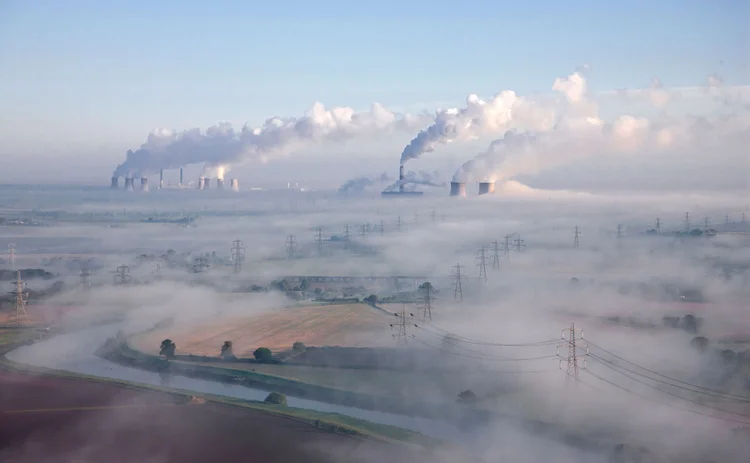
Podcast: Investing, climate risk and energy firms
How are investors enabling the move to the low-carbon economy?

The transition to the low-carbon economy requires revolutionary change within the energy sector. While previous energy transitions have taken 80 to 100 years, scientists say there are only 30 or so years available to make the changes required to avert catastrophic climate change. Effecting this change will require capital reallocation on a huge scale. Trillions of dollars need to be redirected from one part of the energy system to another.
The International Energy Agency estimates that over $30 trillion of incremental capital investment is required between now and 2050 to effect the transition. With governments worldwide cash-strapped as a result of Covid-19, most of this capital will need to come from the global capital markets. But for capital to flow in a way that facilitates the energy transition, climate risk needs to be priced correctly. However, modelling climate risk is extremely challenging, as there is no historical precedent.
In this podcast, Nick Stansbury and Brooks Preston discuss the role and impact of investors and asset managers on the energy transition. They talk about the challenges of pricing climate risk, and discuss the extent to which investor decisions are facilitating the transition to the low-carbon economy. They also talk about the impact that investor decisions are having on energy firms and projects.
Stansbury is head of commodity research at Legal & General Investment Management, one of Europe’s largest asset managers. Preston is a managing director and senior member of the sustainability team at Macquarie Infrastructure and Real Assets, the world’s largest manager of infrastructure.
Nothing spoken about in this podcast is intended to be financial advice
Index
02.34 Has Covid-19 and the resulting economic woes weakened some of the financial incentive to invest in the low-carbon economy?
07:35 How are you modelling transition risk in your portfolios?
10:55 Nick – how easy is it to get the information you need on companies and assets to put into your models?
12:15 Nick – whilst modelling at the individual company and asset level, did you select only certain sectors?
13:56 Brooks – at what stage in the investment cycle do you start to consider transition risk?
16:35 Brooks – how do you get the data you need to assess the transition risk of the assets you invest in?
20:50 At this stage, does transitioning to the low-carbon economy require investors to make ethical, rather than purely financial, decisions?
27:48 Nick – is the role of oil and gas majors in investment portfolios being questioned now, particularly since some firms have cut dividends?
31:36 Brooks – what are energy companies doing well, and what are they doing less well, when it comes to positioning themselves for an effective energy transition?
35:20 To what extent do you see it as the responsibility of asset managers to direct capital towards the low-carbon economy?
Listen to other podcasts in this series here
Only users who have a paid subscription or are part of a corporate subscription are able to print or copy content.
To access these options, along with all other subscription benefits, please contact info@risk.net or view our subscription options here: http://subscriptions.risk.net/subscribe
You are currently unable to print this content. Please contact info@risk.net to find out more.
You are currently unable to copy this content. Please contact info@risk.net to find out more.
Copyright Infopro Digital Limited. All rights reserved.
You may share this content using our article tools. Printing this content is for the sole use of the Authorised User (named subscriber), as outlined in our terms and conditions - https://www.infopro-insight.com/terms-conditions/insight-subscriptions/
If you would like to purchase additional rights please email info@risk.net
Copyright Infopro Digital Limited. All rights reserved.
You may share this content using our article tools. Copying this content is for the sole use of the Authorised User (named subscriber), as outlined in our terms and conditions - https://www.infopro-insight.com/terms-conditions/insight-subscriptions/
If you would like to purchase additional rights please email info@risk.net
More on Commodities
Energy Risk 2024 Software Rankings: IT demands increase amid rising risk
Heightened geopolitical and credit risk increase requirements on commodities software
Energy Risk Asia Awards 2023: the winners
Winning firms demonstrate resiliency and robust risk management amid testing times
ION Commodities: addressing the market’s recent pain points
Energy Risk Software Rankings winner’s interview: ION Commodities
Energy Risk Commodity Rankings 2023: adapting to new market dynamics
Winners of the 2023 Commodity Rankings provided reliability when clients faced extreme change
Energy Risk Software Rankings 2023: managing uncertainty
Unpredictable markets make CTRM software choices key
Navigating the volatility and complexity of commodity markets
Commodity markets have experienced significant challenges since the Covid-19 pandemic, the conflict in Ukraine and the subsequent sanctions imposed on Russia. These unprecedented events have caused fluctuations in supply and demand, disrupted global…
Energy Risk Asia Awards 2022
Recognising excellence in energy risk management
Market shrugs off EC’s plan to change gas benchmark
Dutch TTF prices unmoved, as market participants say they are “not taking it seriously”
Most read
- Industry urges focus on initial margin instead of intraday VM
- For a growing number of banks, synthetics are the real deal
- Did Fed’s stress capital buffer blunt CCAR?








